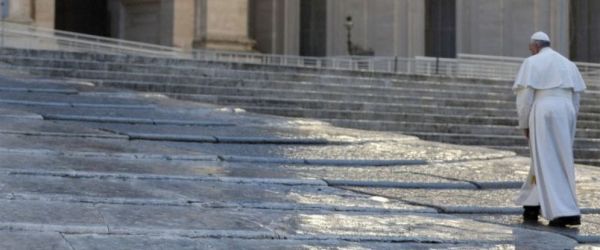“Jesus began to preach” (Mt 4:17). With these words, the evangelist Matthew introduces the ministry of Jesus. The One who is the Word of God has come to speak with us, in his own words and by his own life. On this first Sunday of the Word of God, let us go to the roots of his preaching, to the very source of the word of life. Today’s Gospel (Mt 4:12-23) helps us to know how, where and to whom Jesus began to preach.
1. How did he begin? With a very simple phrase: “Repent, for the kingdom of heaven is at hand” (v. 17). This is the main message of all Jesus’ sermons: to tell us that the kingdom of heaven is at hand. What does this mean? The kingdom of heaven means the reign of God, that is, the way in which God reigns through his relationship with us. Jesus tells us that the kingdom of heaven is at hand, that God is near. Here is the novelty, the first message: God is not far from us. The One who dwells in heaven has come down to earth; he became man. He has torn down walls and shortened distances. We ourselves did not deserve this: he came down to meet us. Now this nearness of God to his people is one of the ways he has done things since the beginning, even of the Old Testament. He said to his people: “Imagine: what nation has its gods so near to it as I am near to you?” (cf. Dt 4:7). And this nearness became flesh in Jesus.
This is a joyful message: God came to visit us in person, by becoming man. He did not embrace our human condition out of duty, no, but out of love. For love, he took on our human nature, for one embraces what one loves. God took our human nature because he loves us and desires freely to give us the salvation that, alone and unaided, we cannot hope to attain. He wants to stay with us and give us the beauty of life, peace of heart, the joy of being forgiven and feeling loved.
[Pope Francis, homily 26 January 2020]












